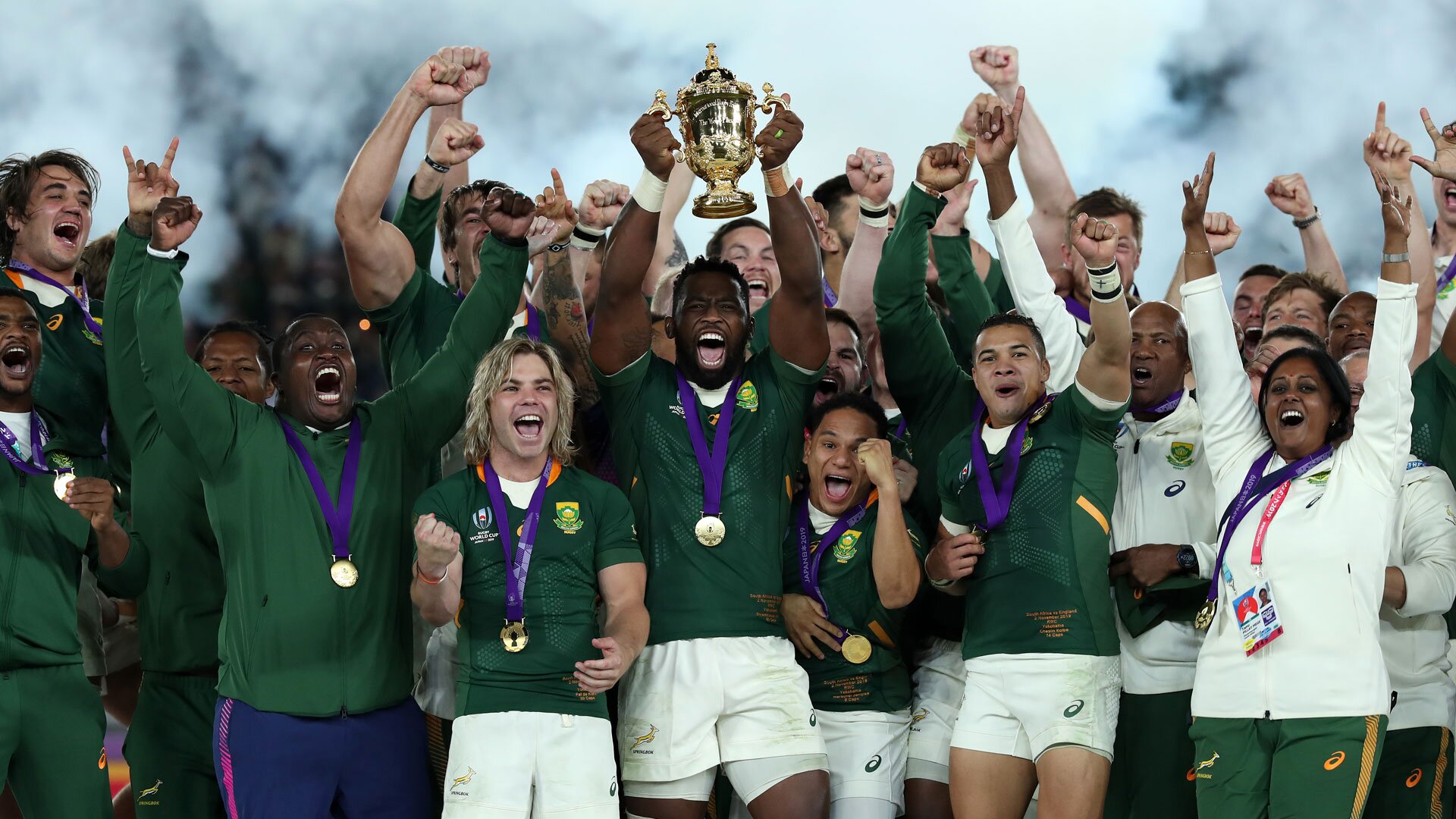What the Springboks' World Cup win means for full-scale centralised contracting

South Africa are a groundbreaking team for many reasons – the first side to win the World Cup after losing a pool match, the first side to win the World Cup and the Rugby Championship in the same year.
A lesser talked about factor, but an important one, is that the Springboks were the first side to win the World Cup with overseas-based players.
Each World Cup winner in the past did so under the requirement that players must play their club rugby at home. South Africa has broken that mould, proving it can be done another way.
Continue reading below…
SARU still retain majority ownership and control of their domestic teams under a centralised model, but under Rassie Erasmus they abolished the rules around selecting overseas-based players.
No longer would they prevent players from representing the Springboks due to playing abroad without being contracted to a SARU-union.
The move opened the door for some of the world’s best players to return to the national fold, including Faf de Klerk, Willie Le Roux, Duane Vermeulen (before officially returning to the Bulls), Cheslin Kolbe, and experienced veterans like Frans Steyn, Francois Louw.
The impact was almost immediate as De Klerk, Vermeulen and Le Roux were integral to winning the first home series under Erasmus against England 2-1 in June 2018.
De Klerk and Le Roux were also critical to securing the first win on New Zealand soil in nearly 10 years during The Rugby Championship later that season. South Africa rose to the challenge of the All Blacks over the two tests to highlight the promise within the squad with a full complement of stars.
The Springboks continued that trajectory in 2019, tightening up their defence even further on the way to a Rugby Championship title before pushing onward to demolish England in the World Cup final.
Vermeulen was named man-of-the-match, while Kolbe put the cherry on top with a wicked run for the final try, two players that benefitted from the change of eligibility rules.
Opening the doors to overseas-based players, it has to be said, has paid off for South Africa.
Whilst the Springboks’ success cannot solely be attributed to this move, it does throw further doubts over the notion that full-scale centralised models are critical – or even highly correlated – to the success of a national side.
It didn’t matter that the Springboks all play around the world with different coaches from different nationalities, playing different styles of rugby. They came together as one under the right coaching and support staff with under two years to shape them.
The other World Cup finalist, despite not allowing overseas-based players in the national side, has a privatised club model and again isn’t a full-scale centralised union.
The RFU does not have the level of control over the national playing base that the other unions have, but they were able to field one of their best ever teams and deservedly made the final.
South Africa’s World Cup win proves that the weight put on this operating model is probably overblown and that ‘control’ doesn’t necessarily correlate with success.
Springboks’ trophy tour in South Africa:
































